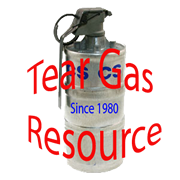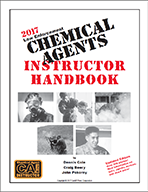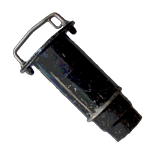Do you know the definition of an expert? An expert is defined as:
“…a person who has special skill or knowledge in some particular field.”
Chemical agent instructors should be able to avoid civil judgments by being cognizant of the problems pertaining to chemical agent’s deployment and instruction, and by conducting classes in a safe and reasonable manner. This requires a professional and ongoing approach to the skills, knowledge, and experience that are necessary to safely and efficiently deploy your chemical agents. Non-lethal chemical agent skills are perishable. As with any skill or expertise, continuing training and practice are needed on a regular basis. The importance of current information should not be overlooked when using and deploying chemical agents. At the very least you should:
- Have written department policy and procedures regarding chemical agents and their use. Martinez v. Hagopian, [182 Cal. App. 3d 1223 (1986)].
- Keep current in the field of chemical agent deployment. Ward v. County of San Diego (1986)
- Become an incontrovertible expert in the field!!!
California Evidence Code Section 720(a) states that a person is qualified to testify as an expert witness if he/she has, “Special knowledge, skill, experience, training or education sufficient to qualify him as an expert on the subject to which his testimony relates.” It continues to say these qualifications must be shown in court and are subject to objection by the other party.
Some of the things that we can do to become a chemical agent’s expert are:
Cultivate your sources
- Keep up with developments in Chemical Agent teaching and deployment. Subscribe to the Chemical Agent Instructor Newsletter.
- Read blogs, journals, periodicals and books about chemical agents. The Internet is a huge collection of information. Get comfortable with how to find experts and the information they publish. Lists of many know books about chemical agents are listed in the appendix of “Chemical Agents Instructor Handbook”.
- Work with chemical agents as much as possible.
- Expose yourself to agent as much as possible.
- Expose others and watch their reactions as much as legally possible.
- Join trade groups and read materials published by such groups as the National Tactical Officer’s Association, Tactical Response Association, Chemical Agent Instructors, Tear Gas Resources, and International Association of Counter-Terrorism & Security Professionals. This is just a sample of the organizations you can find.
- Join LinkedIn Groups. This is a directory of virtual professional associations. Several Law Enforcement Trainer groups are present. This is a great place to learn and find experts who can help you. And there’s a bonus benefit. Your connections at work can see your membership in these groups. Which helps build your reputation as an expert!
- Attend all available training classes. Classes change all the time. Most manufactures hold classes about their specific products. When you attend these bear in mind that the instructor is an employee of the manufacturer and wants you to purchase his product.
- Become familiar with all the chemical agent products in the market. Write a letter on Department letter head to all the manufactures and ask for information and samples. Most manufacturers are listed in the appendices of “Chemical Agents Instructor Handbook”
- Debrief as many chemical agent incidents as possible. A monthly newsletter is available that will list references to United States based incidents. Call the agencies and try and debrief their use. It is best done through someone you know.
- Find people who already are experts. Remember the definition of an expert. All you need to find is anyone who knows more than you do. Then develop a relationship. It can be as simple as a friendship or as formal as a mentor. But ask questions and find out how to learn more.
- Record all your experiences (FirstForward.com), research, associations, teaching assignments, and tactical usage using a comprehensive vitae, bibliography, or resume.
Share your knowledge
- Write for the Tear Gas Instructor Newsletter. If you have an outlet to share articles or columns with other law enforcement professionals, use that.
- Create a blog. Just start writing what you learn and link to sources. Use social media that connects to your colleagues to promote it.
- Join the Speaking Circuit. Talk in front of law enforcement groups about tear gas. You’re likely already familiar with the conferences and events that take place in law enforcement. But have you spoken at any of them yet? If not, now is the time! Research the panels taking place and pitch yourself for the one most relevant to Chemical Agent Deployment. If an agenda isn’t available yet, contact the event organizer and pitch your expertise, including the topics you can speak to. Keep in mind that event organizers are always looking for fresh new voices, so don’t be intimidated by the roster of previous speakers.
- Testify in court as an expert witness as much as possible on the use and effects of chemical agents.
- Teach a Class. In order to learn, teach. You can study for decades and not learn what you can by teaching for a month or two. Teach as much as you can.
- List yourself on an expert witness web site. This will give more exposure and give you a chance to be consulted as a expert witness. Examples: www.expertwitness.com , www.expertlist.com





